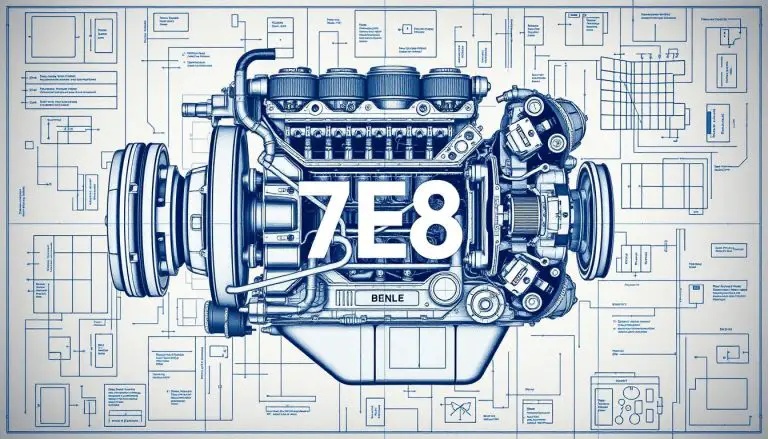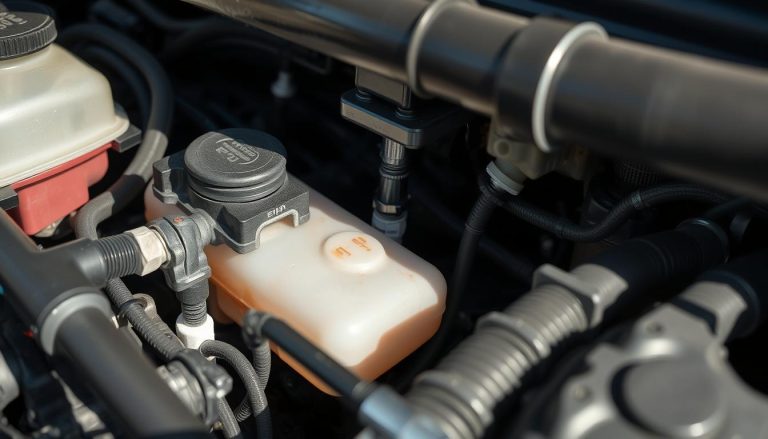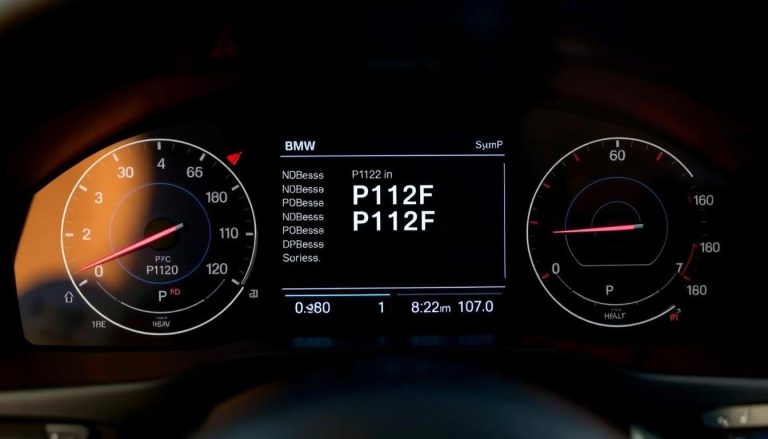This code points to a misfire in cylinder 9—an issue that can lead to reduced engine performance and even long-term damage if left unchecked. Understanding what the P0309 code means and how it affects your vehicle is crucial for maintaining its health and ensuring smooth driving experiences.
In this guide, we’ll unravel the complexities of the P0309 code by exploring its causes, symptoms, diagnostics, and repair solutions.
What does the P0309 code mean?
The P0309 code is a diagnostic trouble code (DTC) that indicates a misfire has been detected in cylinder 9 of your engine. Misfires occur when fuel combustion doesn’t happen as intended, leading to inefficient engine performance.
This specific code falls under the category of “Cylinder Misfire Detected” codes, which means it’s part of a broader issue with how your engine operates. When the Engine Control Module (ECM) detects an irregularity in the firing sequence, it triggers this warning signal.
Addressing this problem promptly is vital for maintaining engine health. A misfire can lead to increased emissions and decreased fuel efficiency. It may also cause further damage if ignored for too long, impacting not only cylinder 9 but potentially affecting other components within the engine system as well.
What are the common symptoms of a P0309 code?
When your vehicle throws a P0309 code, several symptoms may surface:
- The engine may be more difficult to start
- The engine may stumble, hesitate, or exhibit other abnormal behavior
- Acceleration could also suffer.
- An illuminated check engine light often accompanies this code, signaling that something needs attention.
- Strange noises can occur too — popping sounds from the exhaust system may indicate incomplete combustion due to a misfiring cylinder.
- Fuel efficiency can decline sharply.
What are the common causes of a P0309 code?
The P0309 code can arise from several underlying issues :
- A worn-out spark plug is one primary suspect. If the electrode becomes damaged or dirty, it can’t ignite the fuel-air mixture effectively.
- A faulty ignition coil specific to that cylinder. A malfunctioning coil fails to deliver the necessary voltage for combustion.
- Fuel delivery problems also play a role. Clogged fuel injectors restrict flow, leading to poor performance and misfires.
- Engine compression issues cannot be overlooked either. Low compression due to valve problems or head gasket failures can severely impact cylinder function.
- Sensor malfunctions such as a failing crankshaft position sensor may trigger false readings and lead to misfiring codes like P0309.
What are the diagnostic steps for a P0309 code?
Diagnosing a P0309 code involves several systematic steps. First, connect an OBD-II scanner to the vehicle’s diagnostic port. This will confirm the presence of the code and may reveal additional codes that could provide more context.
Next, check for any visible signs of wear or damage around Cylinder 9 components. Inspect spark plugs, ignition coils, and wiring harnesses closely. Any irregularities here should be noted.
After visual inspection, perform a compression test on all cylinders to assess their health. A significant difference in compression can indicate underlying issues impacting performance.
If everything checks out mechanically but problems persist, consider conducting a fuel injector test for Cylinder 9 as well. Ensuring proper fuel delivery is crucial for optimal engine function.
Utilize smoke testing to identify potential vacuum leaks affecting cylinder performance; these could lead to misfires if undetected.
How serious Is the P0309 Code? Can I continue driving with the P0309 code?
The P0309 code indicates a misfire in cylinder 9, and it shouldn’t be taken lightly. A misfire can lead to reduced engine efficiency and increased emissions. Ignoring this issue may cause more severe damage over time.
Continuing to drive with the P0309 code is not advisable. You might experience poor acceleration and rough idling, making your vehicle less responsive on the road. It can also result in further complications, like damaging the catalytic converter due to unburned fuel.
If you notice signs of a misfire or any unusual behavior from your car, it’s best to address the problem sooner rather than later. While some drivers may feel their vehicle is still operable, unresolved issues can escalate quickly into costly repairs down the line. Prioritizing safety and performance should always come first when dealing with engine codes like P0309.
What are the repair solutions for a P0309 – Cylinder 9 Misfire Detected ?
Repairing a P0309 code often starts with addressing the root cause of the cylinder 9 misfire. This could involve replacing faulty spark plugs or ignition coils, which are common culprits behind misfires.
If fuel delivery issues are suspected, inspecting fuel injectors for clogs or malfunction is crucial. Cleaning or replacing these components can restore proper engine function.
In cases where vacuum leaks exist, checking hoses and gaskets around the intake manifold may reveal problematic areas that need sealing.
For deeper problems such as compression loss due to worn piston rings or valve issues, a more extensive rebuild might be necessary.
Regular maintenance checks can help catch many potential issues early on, reducing repair costs in the long run. Always consult with a qualified mechanic to ensure accurate diagnosis and effective repairs tailored to your specific vehicle needs.
How long and How much does it cost to diagnose and repair a P0309 code?
Diagnosing a P0309 code typically takes one to two hours at a mechanic’s shop. Labor costs can vary widely based on location and the technician’s expertise, usually ranging from $75 to $150 per hour.
The total cost for diagnosis may fall between $100 and $300. This price often includes scanning the vehicle’s computer system, inspecting components related to cylinder misfires, and performing necessary tests.
When it comes to repairs, expenses can escalate significantly depending on the underlying cause of the misfire. If it’s something simple like replacing spark plugs or ignition coils, you might spend around $200 to $500. However, if more extensive work is needed—such as fuel injector replacement or valve adjustments—the bill could easily rise to several hundred dollars or more.
Always consider getting multiple estimates before proceeding with any repairs. It ensures that you’re aware of your options and helps you find fair pricing in your area.
How can I avoid a P0309 code?
To avoid a P0309 code, regular maintenance is key. Keep up with routine checks on your vehicle’s ignition system, including spark plugs and coils. Worn or damaged components can lead to misfires.
Monitoring fuel quality is also essential. Use high-quality gasoline and consider adding fuel additives occasionally to clean the injectors. Dirty injectors can disrupt fuel flow and cause issues.
Check the engine’s air intake system regularly as well. A clogged air filter can affect performance by restricting airflow, leading to potential misfires in cylinder nine.
Additionally, pay attention to any warning lights or unusual sounds from your engine. Addressing small problems early may prevent larger complications down the line.
Timely oil changes will ensure proper lubrication for all moving parts within your engine; this helps maintain overall health and efficiency while reducing wear that could trigger error codes like P0309.
What happens if you ignore a P0309 code?
Ignoring a P0309 code can lead to significant complications. A cylinder 9 misfire might seem minor initially, but it indicates underlying issues that won’t resolve on their own.
The engine may struggle, leading to reduced performance and fuel efficiency. You could notice rough idling or stalling while driving. These symptoms can escalate over time.
Neglecting the problem often results in further damage. Components such as spark plugs, coils, or even catalytic converters might incur additional wear from ongoing misfires.
Delaying repairs also means facing potentially costly fixes down the line. Engine damage isn’t just an inconvenience; it’s an expense you might wish to avoid.
Safety is another concern. A vehicle with a misfire may not respond properly in critical situations, increasing the risk of accidents on the road.
Addressing a P0309 code promptly makes sense for your vehicle’s health and your peace of mind.
Is the P0309 code specific to certain car makes or models?
The P0309 code is not limited to specific car makes or models. It can occur in a variety of vehicles equipped with internal combustion engines. However, the frequency and severity of this issue may vary by manufacturer.
Some brands are known for having more robust engine management systems, which could potentially minimize misfire occurrences. Conversely, other manufacturers might face higher incidences due to design flaws or less effective components.
It’s essential to check each vehicle’s service history and maintenance practices. Poor upkeep can exacerbate problems like cylinder misfires across any make or model.
While certain cars may be prone to the P0309 code, it’s crucial for owners to stay vigilant regardless of their vehicle type. Regular diagnostics and prompt attention to warning lights will go a long way in preventing these issues from escalating.
What other codes may be related to P0309?
When dealing with the P0309 code, it’s essential to understand that it may not exist in isolation. There are other trouble codes that can surface alongside or related to a cylinder misfire. Codes like P0300 (random/multiple cylinder misfire detected), P0301 through P0308 (misfires in cylinders 1-8), and even fuel system-related issues such as P0171 or P0172 (lean/rich fuel mixture) could potentially accompany a P0309 diagnosis.
These additional codes provide further insight into the root cause of performance problems within your engine. For instance, if you see a combination of misfire codes along with those indicating fuel delivery issues, it might suggest both an ignition problem and inadequate fuel supply.
Identifying these related codes allows for a more comprehensive approach to troubleshooting and repairs. Addressing all underlying issues will enhance your vehicle’s overall performance and reliability while minimizing the risk of recurring problems down the road. Always consult with a qualified mechanic when multiple trouble codes arise; they can help you navigate this complex landscape effectively.


